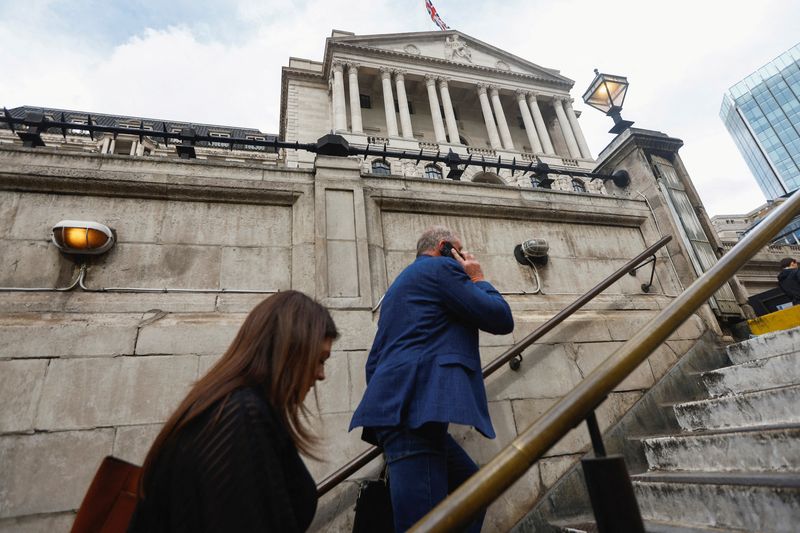LONDON (Reuters) - The pound headed for its longest stretch of losses against the euro this year on Tuesday after the governor of the Bank of England said inflation did not need to return to target to justify cutting rates.
Separately, European Central Bank data showed euro zone wage growth moderated in the fourth quarter from a record high in the third.
Sterling was last up 0.13% at $1.2612 against the dollar, but down 0.23% against the euro at 85.705, around its lowest in a month.
The pound was heading for a fifth consecutive daily loss against the euro, the longest such stretch since November.
The ECB, much like the Bank of England, is fixated on wage growth and price pressures in the services sectors - two areas of the inflation picture that respond more slowly to changes in interest rates than other assets, such as housing or raw materials.
BoE Governor Andrew Bailey told UK lawmakers on Tuesday that bets on interest rate cuts this year were not unreasonable, but he also pointed to clear signs of an upturn in Britain's economy which fell into recession at the end of last year.
"There was a lot of emphasis again on this point about the recession, and not as much emphasis on ... the fact that there is a strong story, particularly on the labour market, actually also on household incomes," he said.
Futures markets show traders expect around three rate cuts from the BoE this year, compared with at least four from the ECB.
But this is down from closer to five cuts priced in at the start of 2024, which Caxton strategist David Stritch said should have offered the pound some support.
Given that expectations for rate cuts from most major central banks for 2024 are receding quickly, sterling isn't getting much edge from rate differentials, he said.

"It suggests rates at 4.5% by year end, only 0.75% off where we are now, given the optimistic pricing of 1.5% of cuts at the start of the year," Stritch said.
"It shows how quickly that well of happy pricings has dried up. Despite this, sterling has not enjoyed much success, although these climbing expectations of end of year rates are a global phenomenon and so GBP is being eaten up by the differential," he added.